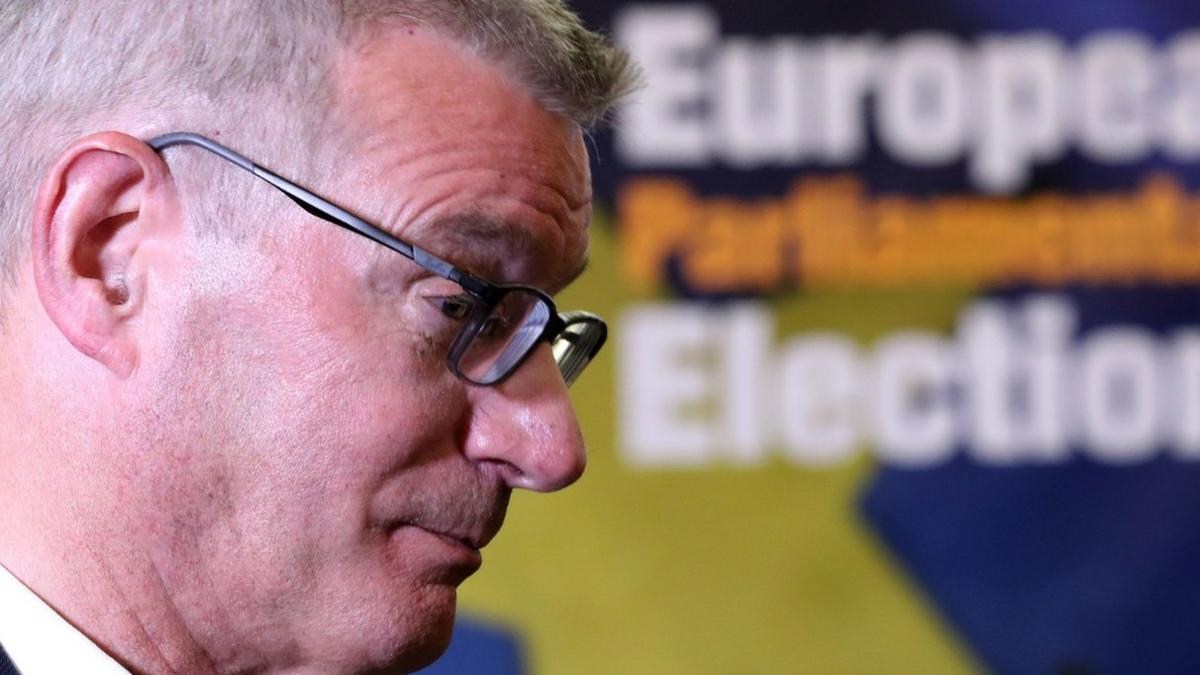Why the European elections matter
- Published
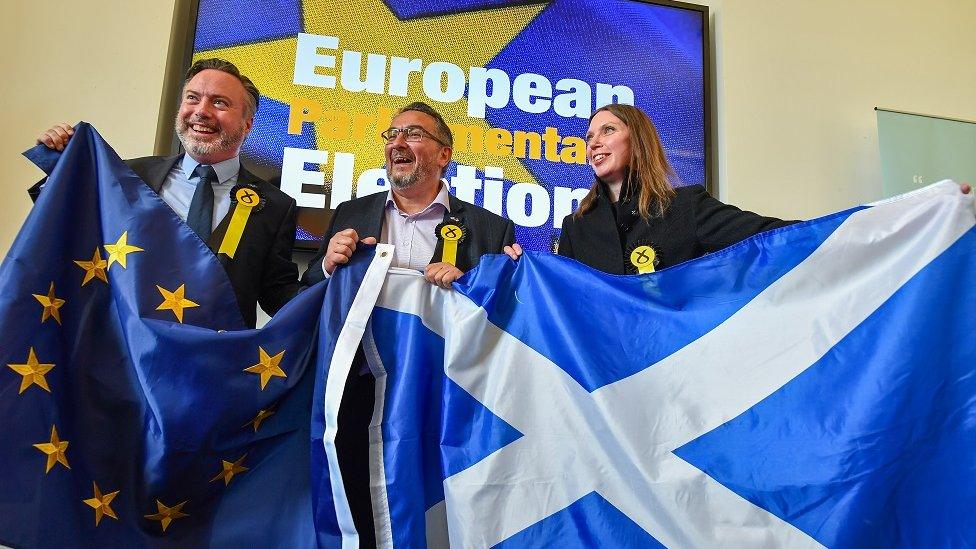
The SNP's Alyn Smith, Christian Allard and Aileen McLeod have been elected MEPs
En route to the declaration of the election result today, I encountered a couple of cameos which prompted me to reflect.
One was an elderly woman in a wheelchair being pushed along the pavement by an energetic carer. The old woman bore an expression of dignified resignation, if not quiet despair.
Then I passed a roughly garbed man of indeterminate years. He glanced surreptitiously, then boldly, into two waste bins outside an upmarket hotel, in search of cigarette stubs. Only one yielded a result which he deftly slipped into his carrier bag.
I may be misreading the scenes but I doubt whether either citizen was paying a whole lot of attention to the detailed outcome of Scottish voting in the Euro elections.
They had more pressing concerns, written in the actions of the man and the defeated demeanour of the woman.
Still, these results do matter. I will not pretend that the entire fate of the Scottish nation nor the wider UK rests with the data delivered by the d'Hondt counting formula.
We are not electing a government.
(Not yet, I hear the Brexiteer voices mutter or yell, according to taste and stridency.)
We are not even determining the make-up of the European Parliament. Scotland has six MEPs, the UK has 73, the European Parliament, still peripatetic, currently musters 751 in Brussels or Strasbourg.
Plus, of course, we are still on the verge of leaving the EU, according to the sundry contenders to replace Theresa May as Conservative leader and prime minister.
But, I repeat, these elections matter, both directly and tangentially. They offer signals as to the wider wishes of the voters anent Brexit and Scotland's future. They matter, indirectly, to the economy and social policy.
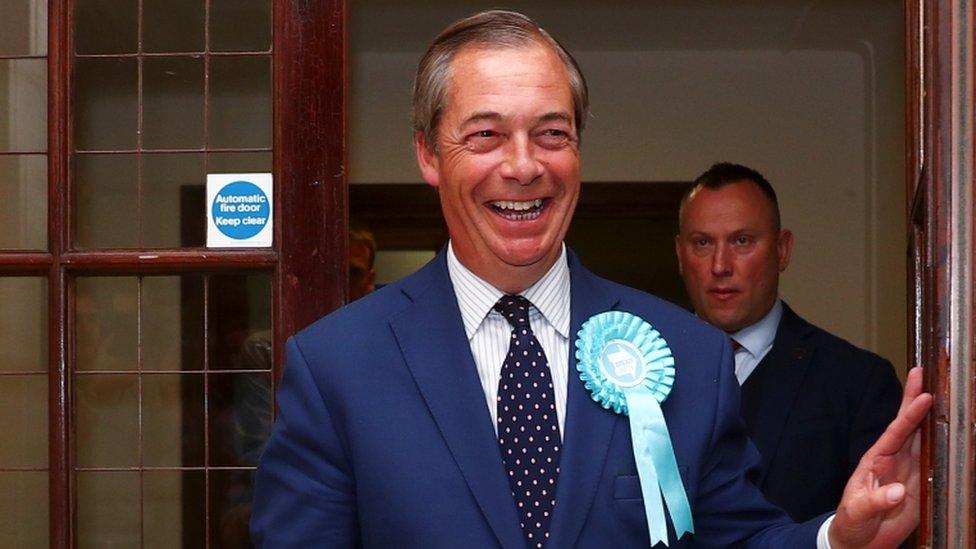
Nigel Farage's Brexit Party is on course to win the most votes across the UK
In the UK as a whole, Nigel Farage's Brexit Party has emerged victorious. Folk who previously voted to leave the EU have told the Conservative government and the Labour opposition to pay heed to their demand.
In essence, they are asking: Weren't you listening earlier? We said we wanted to leave and we meant it.
But then we have the advances for the Greens and, most significantly, the big gains made by the Liberal Democrats.
The Lib Dems in particular kept it simple. Identify and target prospective supporters of Remain. Ignore the rest. Then tell that target audience that a Lib Dem vote equates to staying in the EU.
Bold claims
Threading a path between Scylla and Charybdis has proved all but impossible for the established forces of Conservative and Labour.
Neither the constructive ambiguity of Jeremy Corbyn nor the destructive chaos engineered by Theresa May has impressed the electorate. Up with these they will not put.
Understandably elated, the Brexit Party's leadership has been making some bold claims. They want a role in the EU negotiations.
(They won't get one; the UK government finds it quite tricky enough without external "advice".)
And they say they are in politics for the medium to long term, expecting a role in the Westminster and Holyrood elections.
Anything is possible, one supposes. But this seems currently unlikely. For one, UKIP (Mr Farage's previous vehicle) did well at the last EU elections without breaking the broader mould of British politics.
For another, if the Brexit Party get their way - and thus get Brexit - it would seem to this observer that their job is largely done.
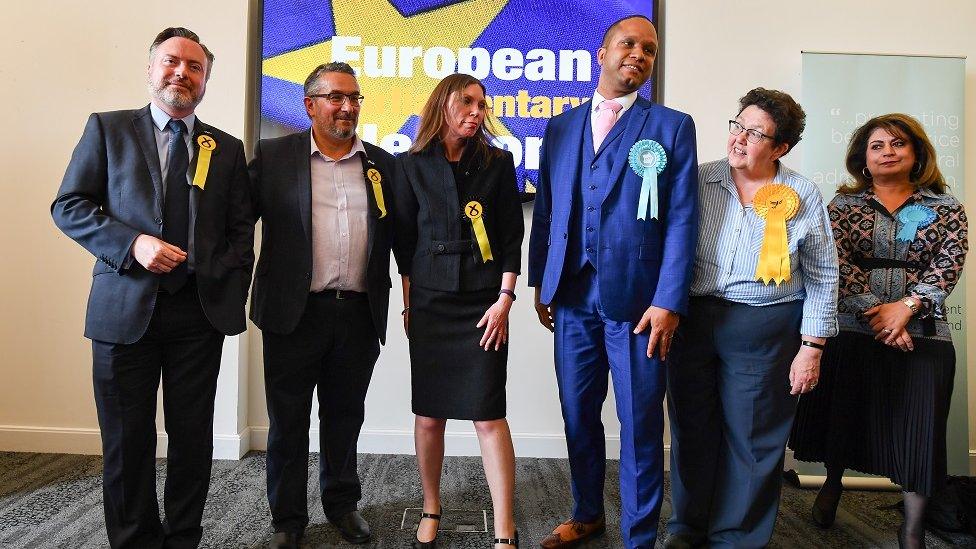
The SNP topped the poll, returning three MEPs but Scotland also elected the Brexit Party's Louis Stedman-Bryce
Let us turn to Scotland. The clear, overwhelming winners are the SNP. To whom all plaudits.
Actually, where are my manners? Warm congratulations to all elected MEPs, returning or new. May you spend exactly as long in the parliament as your ideology provides.
The SNP contrived to corral Remainers and blend them with existing supporters of their pitch. To be absolutely clear, Nicola Sturgeon consistently linked stopping Brexit with offering the option of independence.
Each phrase she formed about Brexit adhered to one about indyref2. These twin elements were inseparable, although the primary focus was Brexit, given that these were European elections.
So how are we to interpret their good result? Alyn Smith, the lead candidate, was admirably clear. Scotland had voted - again - to remain in the EU.
But what, I inquired, if Brexit still goes ahead? Then, he said, the party would be entitled to consider other scenarios. The independence offer would be back on the table.
Except that there is an absence of precision about this, partly because the timing of an independence referendum is not solely in the hands of the Scottish government and partly because Ms Sturgeon has left open a two year window in which to activate indyref2.
It reminds me a little of Lear. I will do such things - what they are, yet I know not, but they shall be the terrors of the earth. A promise, a threat even, but imprecise.
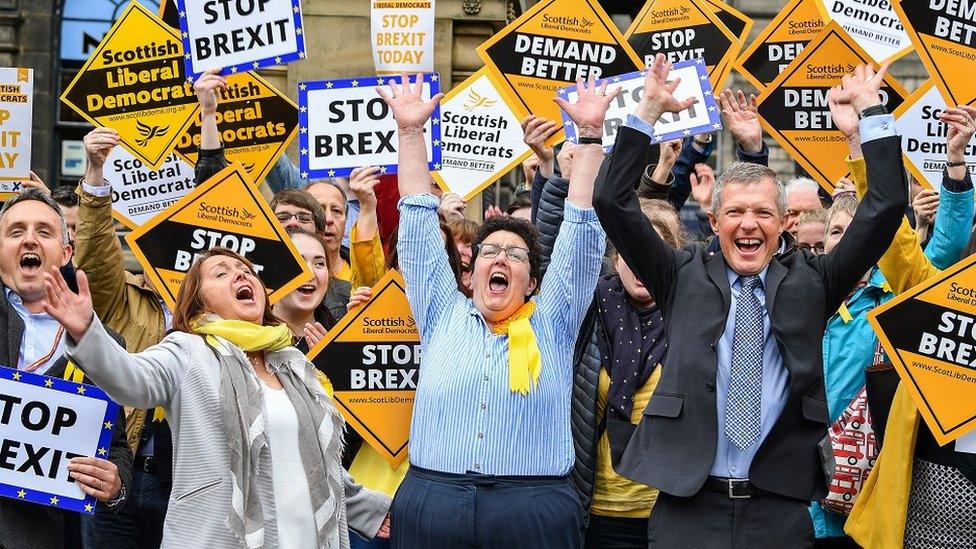
Sheila Ritchie, the newly-elected Lib Dem MEP, celebrated with party colleagues and supporters
Still, a triumphant result for the SNP. The Lib Dems are also over-joyed. (Nobody does ebullience quite like Willie Rennie, although the new MEP Sheila Ritchie runs him close.)
First time they had beaten Labour and Tory since 1910, he purred. Best Euro result ever, he chortled. Ms Ritchie was a little more sanguine. Voters, she said, had finally forgiven the UK coalition and were ready to listen again.
And then the Conservatives. A poor night in Scotland. But, uncommonly, somewhat better than the unalloyed calamity of the Tory showing south of the Border. Muttered dark humour about offering training courses to Tories in the south-east.
And one more element of comfort for the Tories. They did better than Scottish Labour. The once proud Labour Party is frequently described as having dominated Scotland in the past, although that was partly chimerical, created by first past the post victories in the central belt.
But Labour was powerful in Scotland. It was strong. It fielded winners. Not this time.
Labour slumped to fifth place in the Scottish voting percentages. Last time they had two MEPs, the esteemed David Martin and the regarded Catherine Stihler. This time they have none. Perhaps understandably, Mr Martin did not trouble to attend the final declaration.
What a falling off was there.
- Published27 May 2019
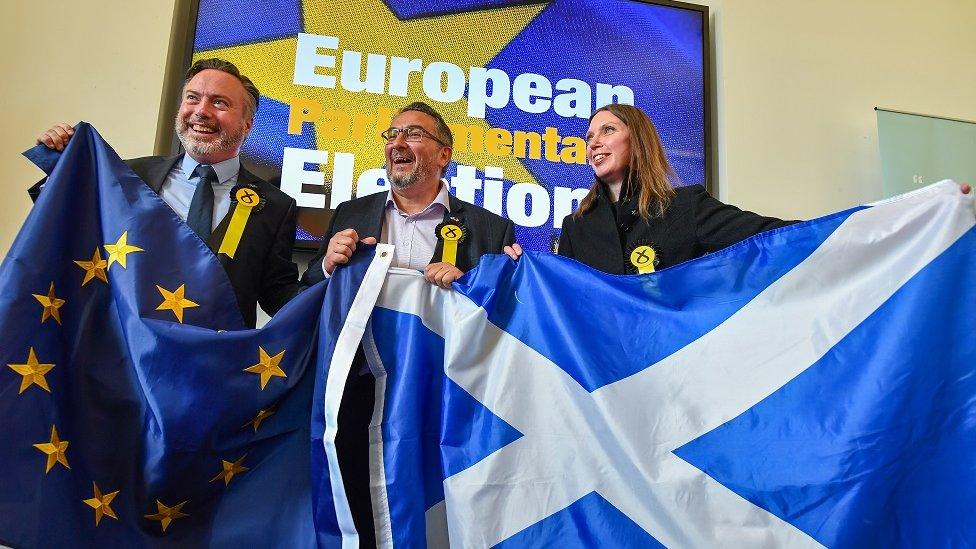
- Published27 May 2019
